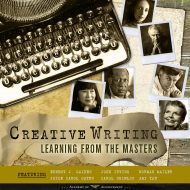At 16, I was immensely innocent, but at the same time, I had the kind of arrogance that every writer needs. You can't become a serious professional writer unless there is a built-in arrogance about yourself. It's a vanity and when the vanity is misplaced — as it usually is — it's sad, if not tragic.
Norman Mailer was born in Long Branch, New Jersey, and grew up in Brooklyn, New York in what he calls a “typical middle-class Jewish family.” His father was an accountant, his mother assisted an uncle in running a small trucking company. As a boy, he reveled in romantic adventure fiction, and at the age of nine composed a 250-page science fiction story called “Invasion from Mars.” An ambitious and competitive student, he graduated from Brooklyn’s Boys High School in 1939 and won admission to Harvard at age 16. While still an undergraduate, he won a student fiction contest sponsored by Story magazine, and, although he earned a degree in aeronautical engineering, he had already resolved to make a career as a professional writer.
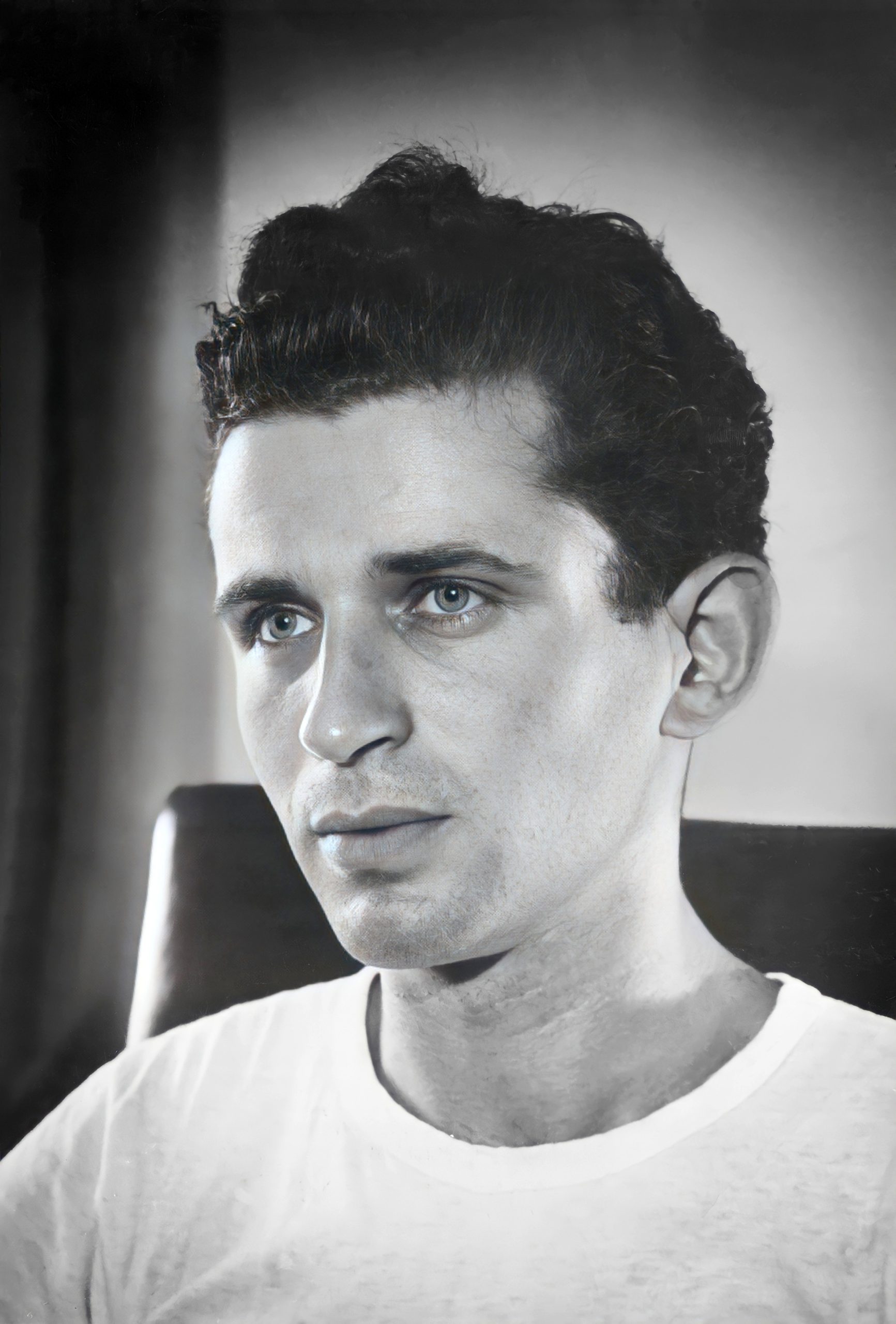
He graduated in the middle of World War II, and entered the United States Army, serving as a sergeant in the Pacific. After the war, he undertook graduate studies at the Sorbonne in Paris, and in only 15 months composed his first novel, The Naked and the Dead (1948), inspired by his wartime experiences in the Philippines. The book enjoyed enormous success in the United States, and made Mailer a national celebrity at age 25.
The young novelist spent a year in Hollywood, but soon became disenchanted with the motion picture industry, and increasingly fascinated with radical politics. He returned to New York and settled in Greenwich Village. Mailer’s next two novels reflected the political tensions of the McCarthy era. Barbary Shore (1951), set in his native Brooklyn, and The Deer Park (1955), a tale of Hollywood, both met hostile reviews and disappointing sales. In the late 1950s, Mailer appeared in print most frequently as the author of startling magazine essays on the heated topics of sex, drugs, race and violence. A 1957 essay, “The White Negro,” drew parallels between America’s racial tensions and the alienation of the era’s Beat Generation.
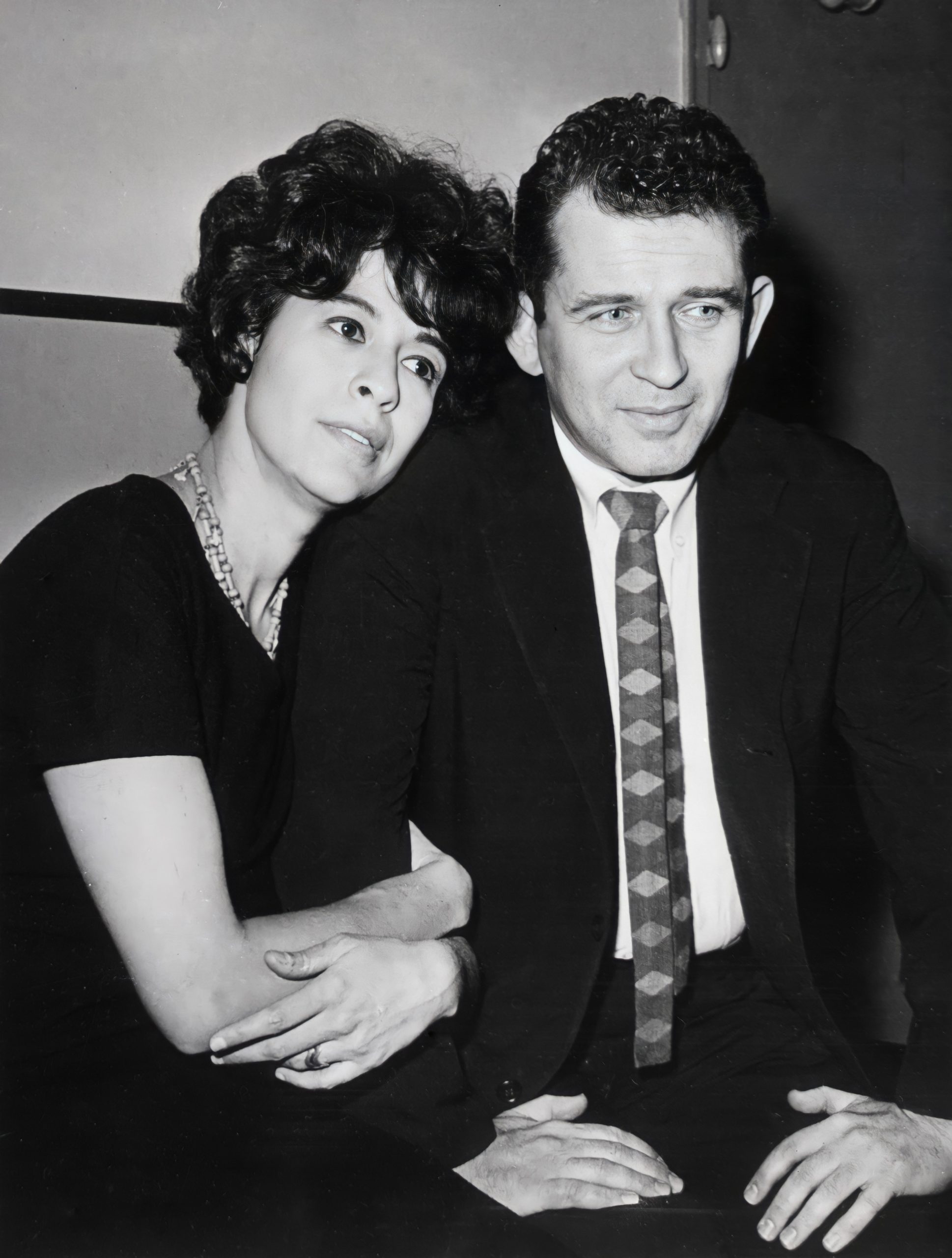
Some of Mailer’s most provocative writing of the late 1950s appeared in the controversial volume Advertisements for Myself (1959). In the same period, Mailer co-founded The Village Voice newspaper, the first of America’s alternative weeklies. As Mailer’s subject matter became more incendiary, his private life became increasingly turbulent. His fascination with drinking, drugs and violence nearly took a tragic turn in 1960, when he stabbed his wife Adele Morales with a penknife after a nightlong party. Mrs. Mailer declined to press charges and Mailer was given a suspended sentence. The couple were quickly reconciled but later divorced.
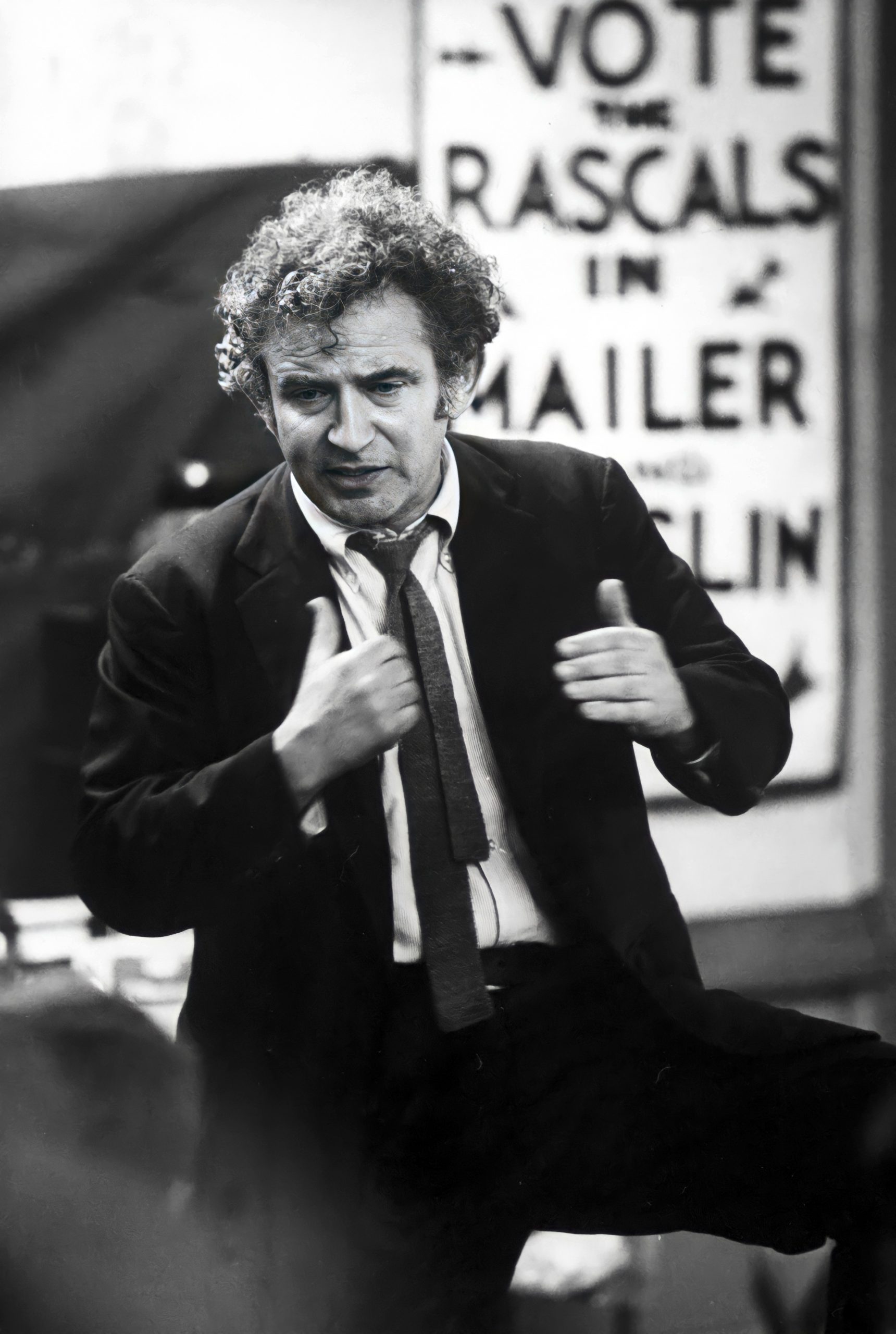
In the 1960s, Mailer found a renewed sense of purpose in reporting on the social upheaval associated with the civil rights and anti-war movements, the rising counterculture and the sexual revolution. Beginning in 1960, he covered the Democratic and Republican conventions as a journalist. He reported on the Kennedy administration in Presidential Papers (1963) and fused themes of politics, sex and violence in his novel An American Dream (1965). With Cannibals and Christians (1966), he consolidated his reputation as a major American essayist and social commentator. Throughout the 1960s he turned to innovative new forms of journalism to report on the tumultuous politics of the time, employing many techniques of fiction, including colorful prose and a strong personal point of view, to comment on current events.
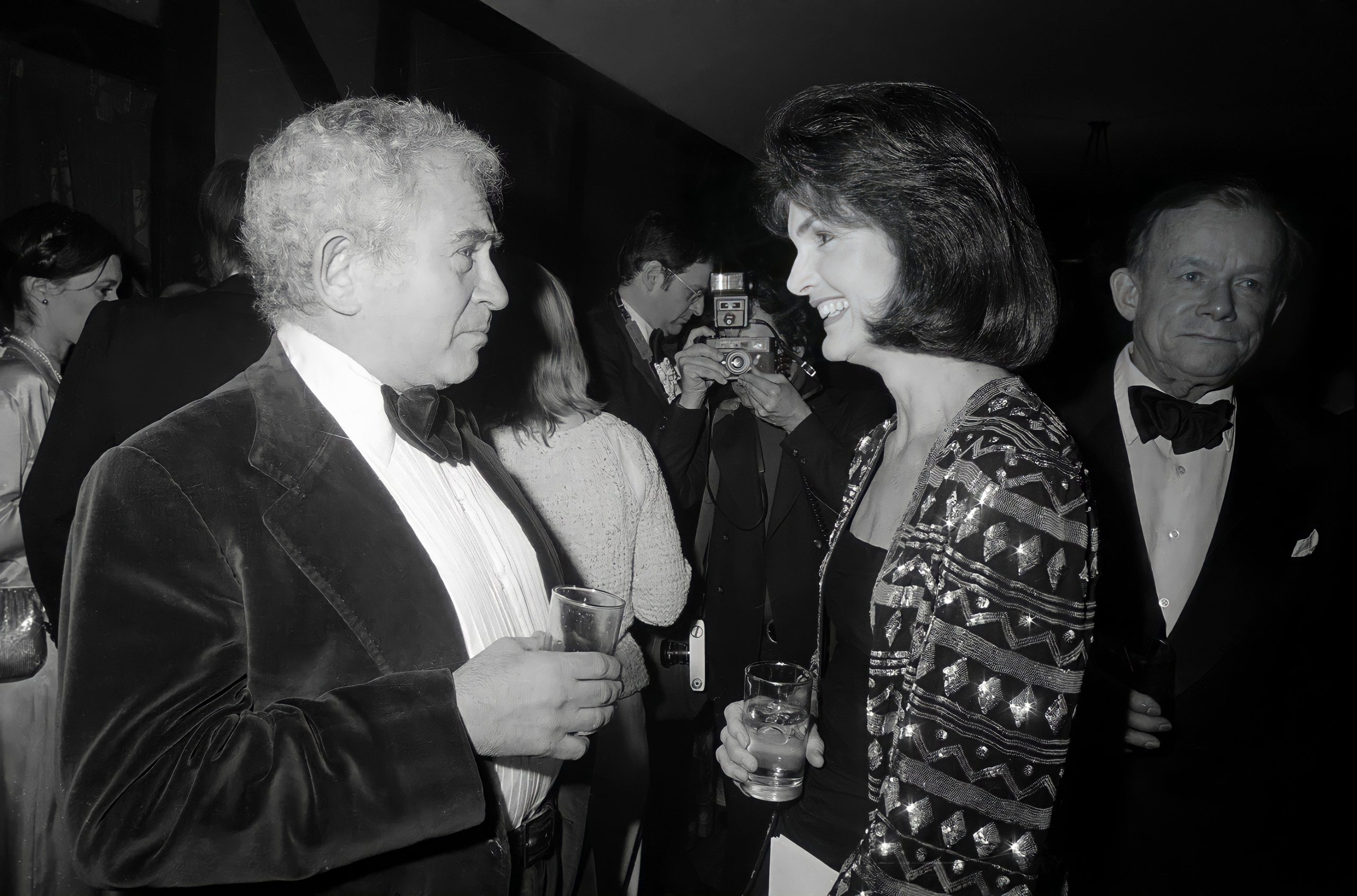
In 1967, Mailer was arrested at the Pentagon while demonstrating against the Vietnam War, an experience he recounted in his book Armies of the Night (1968), which received the Pulitzer Prize for Nonfiction. Miami and the Siege of Chicago (1968) continued Mailer’s coverage of the political conventions. His political involvement culminated in an exuberant, if ultimately unsuccessful, campaign for Mayor of New York City in 1969.
The Prisoner of Sex (1971) brought Mailer into conflict with many writers in the growing feminist movement. By the mid-1970s, many critics had begun to dismiss Mailer as a writer whose best days were behind him, but at the end of the decade he made a startling comeback with The Executioner’s Song (1979). As he had used the techniques of the novel to inform his journalism of the 1960s, he now adopted real life undisguised as the material for a “nonfiction novel,” relating the life of convicted murderer Gary Gilmore, whose death by firing squad in Utah was the first execution to take place in America since the 1960s. Although solidly grounded in fact, The Executioner’s Song read like a thoroughly imagined work of fiction, and was recognized as such by the Pulitzer Prize Committee.
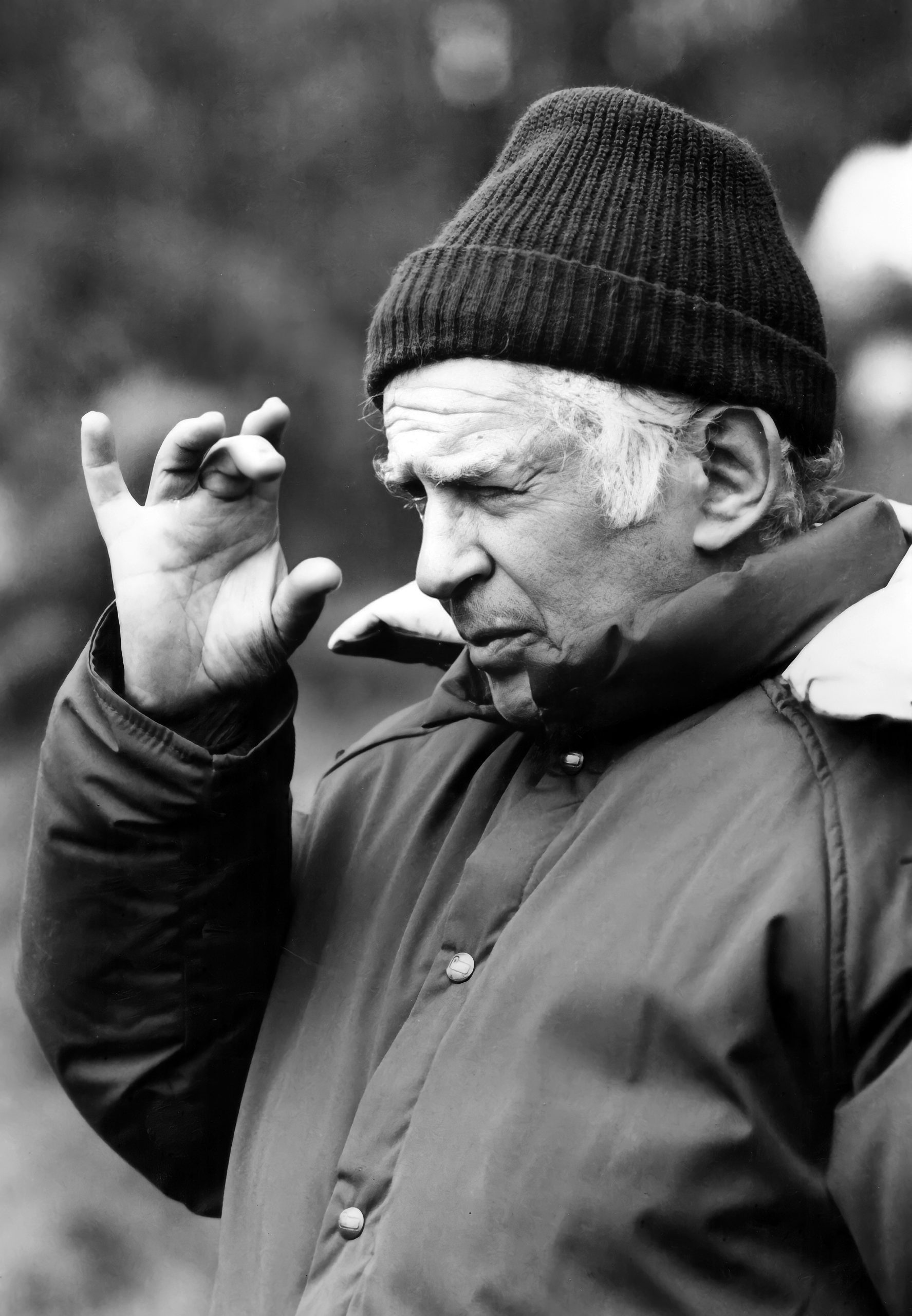
Mailer’s next literary production, Ancient Evenings, was even more surprising, a novel set in Egypt at the dawn of recorded history. In the 1960s, Mailer had directed a number of independent films. He returned to cinematic work with his contributions to the screenplay for Sergio Leone’s Once Upon a Time in America. With his interest in cinema and genre fiction revived, Mailer wrote a detective story, Tough Guys Don’t Dance (1984), and directed the film version himself.
In 1984 he traveled to the Soviet Union and reported that it was not the resurgent empire of Cold War rhetoric, but an underdeveloped country on the verge of collapse. Long active as a member of the international writers’ organization PEN, he returned to public engagement, serving as President of the PEN America Center from 1984 to 1986. Mailer looked back on the history of the Cold War in a massive fictional account of life in the CIA, Harlot’s Ghost (1992). Previously unpublished documents from the Soviet intelligence archives supplied Mailer with material for Oswald’s Tale (1995), an imaginative reconstruction of the life of President Kennedy’s assassin. In 1997, he turned to an even more unexpected subject, the life of Jesus, in The Gospel According to the Son.
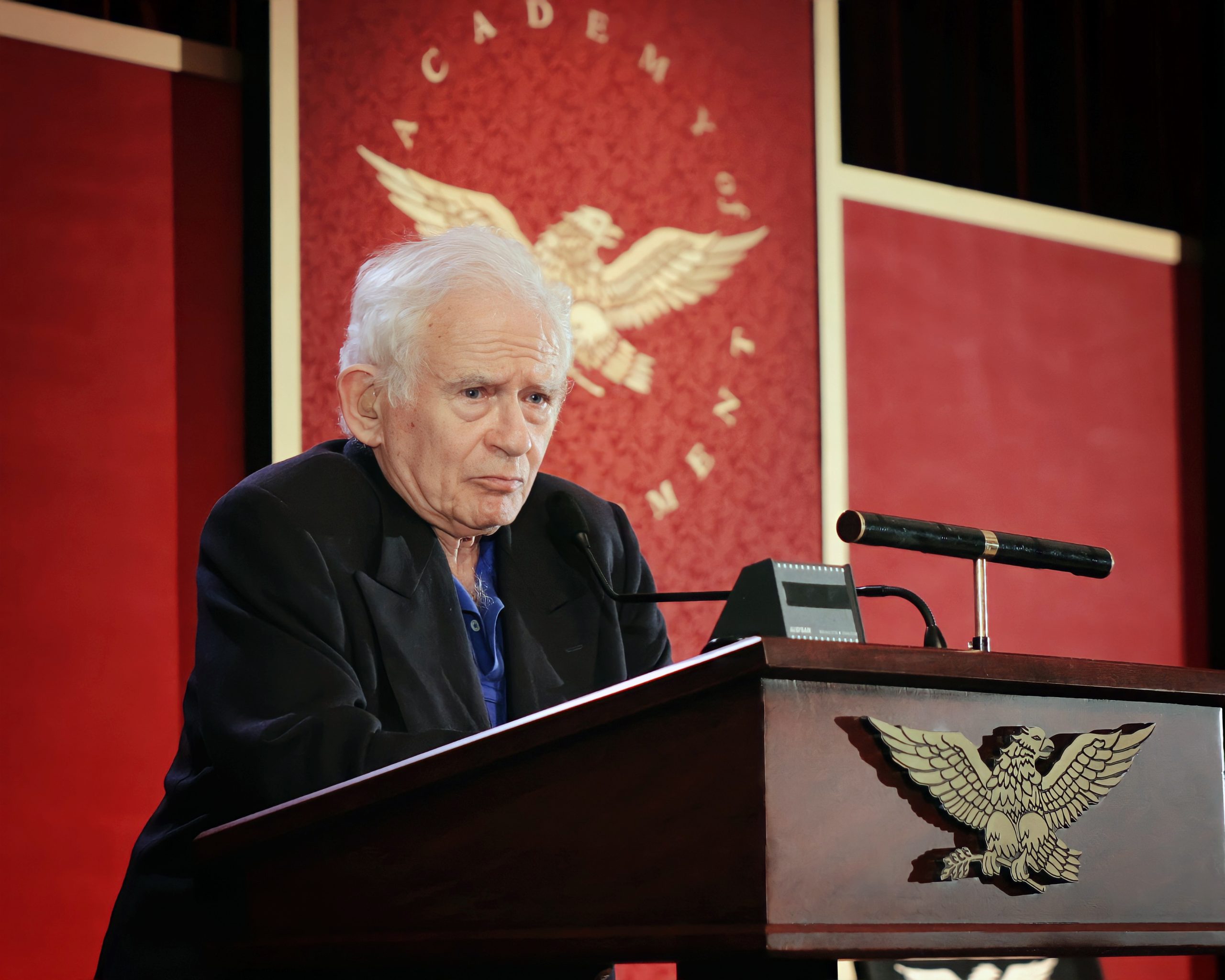
A large compendium of Mailer’s fiction and nonfiction writing, The Time of Our Time, appeared in 1998. In his 81st year, Mailer published a book-length essay on the craft of writing, The Spooky Art. After six marriages, four feature films and over 40 books, Norman Mailer, long the center of so much controversy, spent his last years quietly in Provincetown, Massachusetts. His last works were The Castle in the Forest — a novel about the childhood of Adolf Hitler, narrated by a demon — and On God: An Uncommon Conversation, a work of theological speculation published a few weeks before his death.
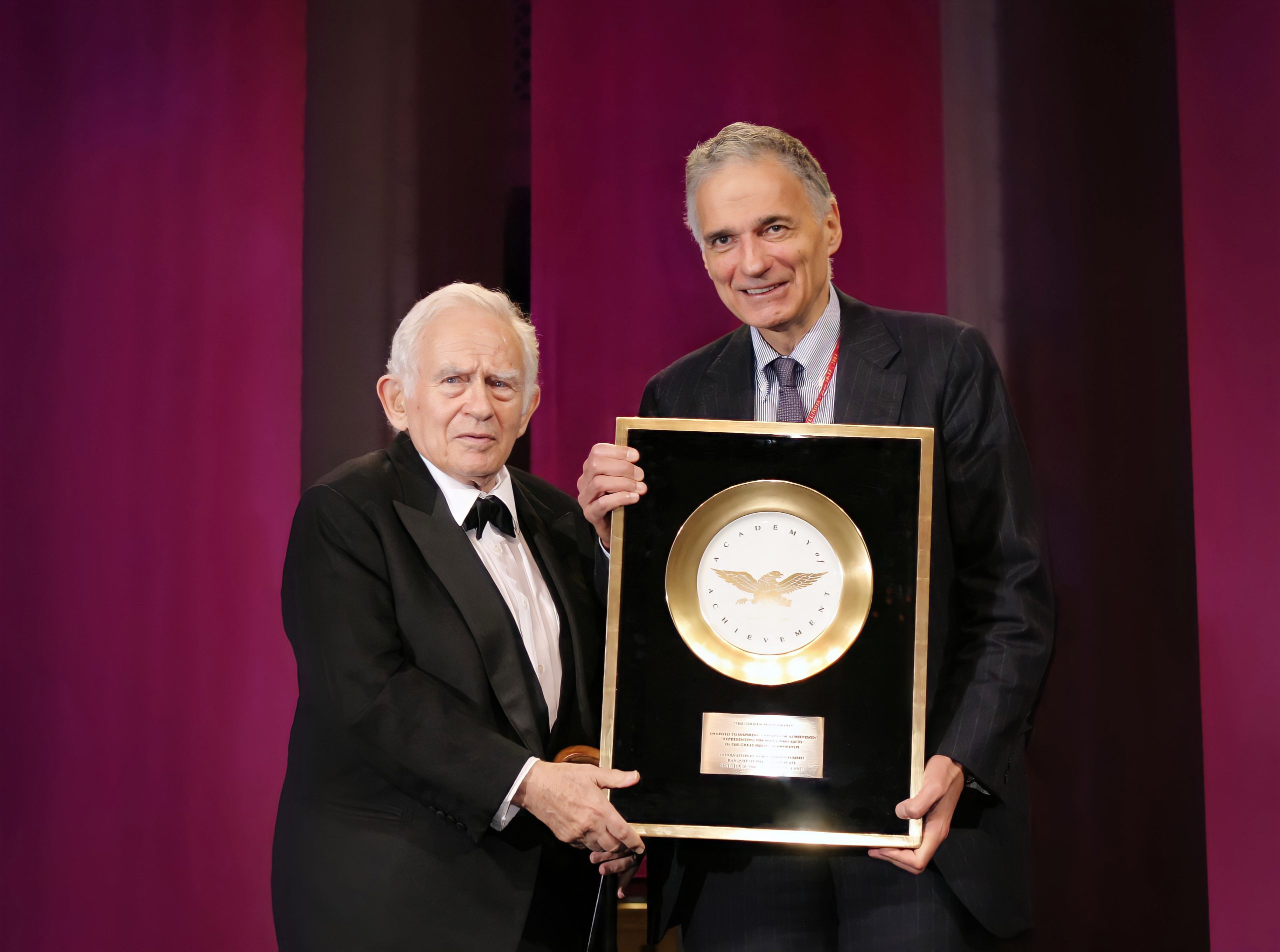
Norman Mailer died in New York City at the age of 84. For six decades, he had thrilled, amused, provoked and enraged readers around the world, asking even his severest critics to reconsider their most cherished assumptions. There may never be a reader who can agree with every stand Mailer took in print over the years — he himself reconsidered many of his old positions — but what never changed was his fearless dedication to speaking his own mind, and his complete commitment to freedom of expression for all.

“I take it for granted that there’s a side of me that loves public action, and there’s another side of me that really wants to be alone and work and write. And I’ve learned to alternate the two as matters develop.”
The most publicly engaged and controversial American writer of the last half-century, Norman Mailer won American literature’s most distinguished honors for both fiction and nonfiction, although much of his best work deliberately tested the limits of these traditional categories.
His experiences as a soldier in World War II provided the raw material for his first novel, The Naked and the Dead. Acclaimed for its realism, it was an immediate best-seller, and remains the most praised American novel of the Second World War. In the 1950s and ’60s, Mailer became increasingly involved in politics and public affairs. In 1967 he was arrested at the Pentagon during a demonstration against the Vietnam War. His account of these events in Armies of the Night won the Pulitzer Prize for Nonfiction. Norman Mailer received the 1980 Pulitzer Prize for Fiction forThe Executioner’s Song, his account of the real life and death of the convicted murderer Gary Gilmore.
In a 60-year career, he wrote over 40 books, and while his personal involvement in politics culminated with a flamboyant campaign for Mayor of New York City in 1969, he remained, to the end of his days, an active and outspoken observer of American public life.
The Naked and the Dead obviously came out of your own experience in the war. What was the connection between your real experience and the book?
Norman Mailer: When you talk about the difference between real experience and the experience you put into a book, you touch on perhaps the single most basic difficulty. For some young writers it’s very disturbing not to tell the story exactly the way it happened. For others it’s equally disturbing to tell it the way it happened. They want to exaggerate it. They want to make it larger. That could be good or bad.
Very often people have a poverty of experience when they’re young. So if they just write about what is true to them, their stories can be a little flat, and without interest for people who know this experience and comprehend it already. They’re bored by the story. On the other hand, if you start exaggerating what happened to you and you don’t do it well, you fall on your face. It’s embarrassing. So this is the dilemma that faces a young writer very often, if they’re capable of going in both directions. Not all writers are. Some writers can only fantasize, and some can only be true through the experience. But if a kid were going in both directions — which is always a sign, I think, that you might have some possibilities in the future as a writer — then very often you have to make a calculation deep in your unconscious of which method you’re going to go with for a given book.
I’ve written books where I’ve pushed it very far, far beyond my own experience, and other books where I stayed very, very close to the experience I received, as in The Executioner’s Song, for example. Now in The Naked and the Dead I did something in between the two. To wit: I had a lot of experience in the war, but it was not as intense as the experience of the people who were the characters in my book. Nonetheless, it was close enough so I could extrapolate a bit. I could exaggerate to a degree, because I had a sense of what the outer possibilities were, as you do when you get a little bit of combat. You get a very good idea of what a lot of combat might be like. Not necessarily a true idea, but a bigger idea. I came late to my outfit in the Philippines, and most of those guys went over for a couple of years already. They had been in other campaigns, so I picked up all the stories of battles that they had been in before I ever joined them. So you could say The Naked and the Dead was on the one hand realistic, and on the other hand it was an exaggeration of experiences I had.
Specifically…
We were sent out one day to do a very tough patrol, and the patrol went wrong. We kicked over a hornet’s nest as we were getting to the top of a hill. Half the platoon ran down the hill, afraid of the hornets. The other half of us ran up the hill to get away from the hornets, and the patrol was wrecked. This was on a day we were supposed to find a crack platoon of Japanese Marines who apparently had infiltrated our lines. The humor in it was the lieutenant, who was in charge of the patrol, radioed back to headquarters and said, “We’ve been divided, ran into a hornet’s nest. We’re continuing back to base.” And at the other end, the major who was hearing it said, “What the hell did he mean by that remark? Is he speaking of a literal or a figurative hornet’s nest?”
I chose to take this small patrol, which seemed very dangerous in the beginning to us, but ended in fiasco, and that became the patrol that took several days in The Naked and the Dead and got much exaggerated.
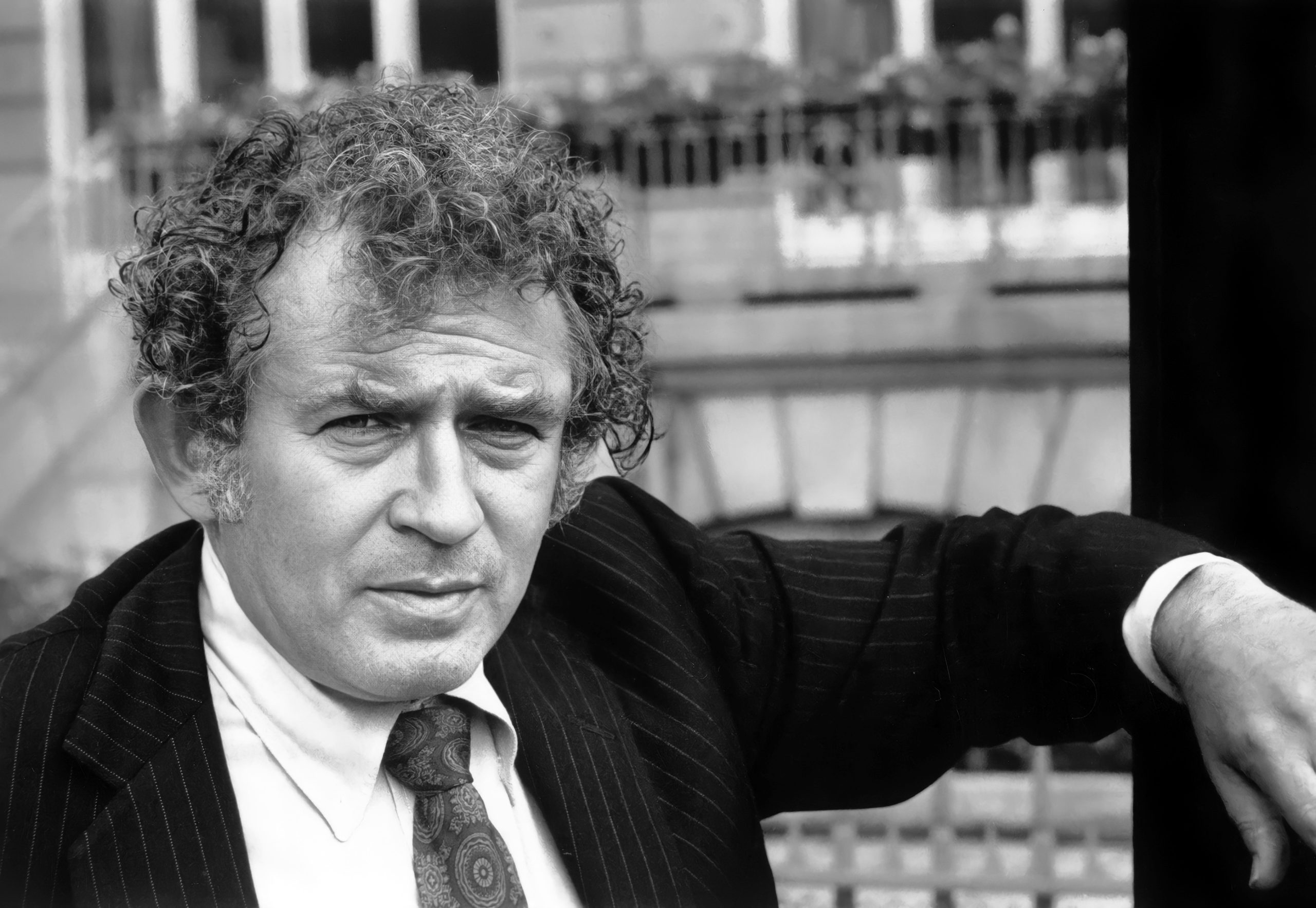
I think the thing that gave The Naked and the Dead its sense of absolute realism even, when it was not absolutely realistic and was not about personal experiences all the way at all, just partially, is that the characters were good in The Naked and the Dead. I had lived among these soldiers for two years and I knew a lot about them. And so, when it came to drawing them, developing them, they became very real to me. In a certain sense, if your characters in the novel don’t become as real to you as the members of your family, then you’re in a lot of trouble. Your characters are not going to develop. But, once you’ve got characters who are real, and start to develop and you live with them, and they’re — as I say — they’re as real to you as uncles and aunts and cousins and friends, then they start to do things on their own that are very good. And so, I think the reason The Naked and the Dead has that realistic feeling — although to repeat, it was not that realistic — is precisely because the characters carried along, and you believe in the characters. And, once you believe in the characters, the book tends to become more realistic, whatever its stance.
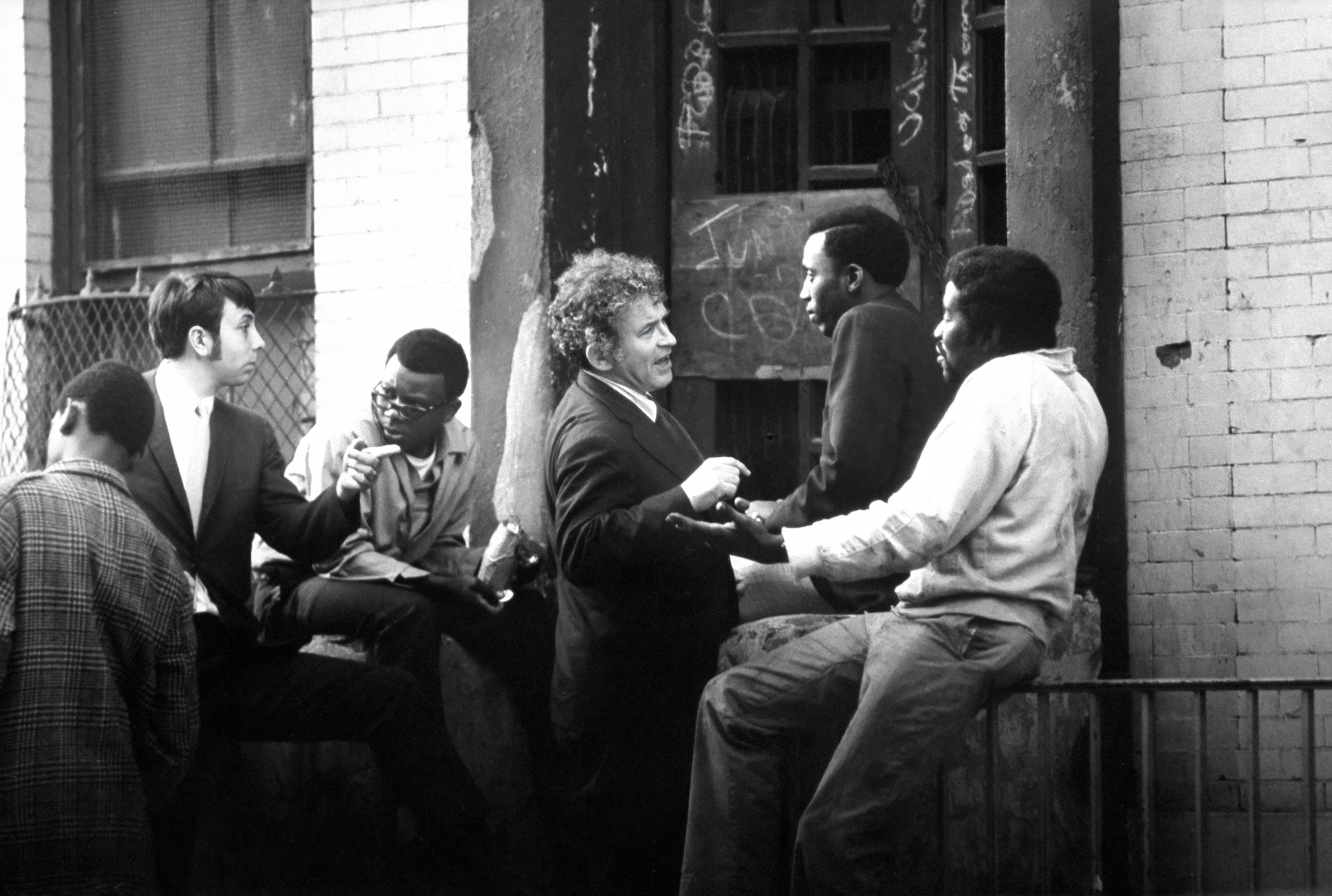
In The Spooky Art you referred to The Naked and the Dead as a bestseller by an amateur. What did you mean?
Norman Mailer: I think I said, “a talented amateur,” number one, and what I meant by that is I was not yet a professional. Amateurs can very often write novels that attract more public approval than professional writers. Any number of bestselling novelists remain amateurs all their lives, and they don’t really learn their craft. What they have is an openness to their subject that appeals to a great many people. Very often, professional novelists attract fewer people because you almost have to be a professional reader to enjoy the merits of what the professional writer is doing. But in any event, when you’re a professional — and this is where I make the separation — you have a much better sense of the odds against you in doing something. So you make hard calculated judgments, the same way a professional athlete will. Do you make your superior effort here, or there? You know you have a superior effort you can call upon. You know that superior effort is not going to be present every day in every way. You pace yourself. So you make a great many decisions on the basis of whether you can bring it off in the writing, or you’re taking too big a chance and you’re going to mess up your book and waste a great deal of time.
An amateur lives with a different question altogether. It’s, “Am I really a writer? Am I a fraud? How can I possibly be a writer? I don’t know enough to be a writer.” On the other hand, “I know things nobody else knows.” In other words, there’s a great deal of arrogance and inferiority in someone who is an amateur. They really don’t have a measure of themselves. And in that sense, that was absolutely true when I was writing The Naked and the Dead. I didn’t know if it was any good at all or if it was the greatest thing since War and Peace. I was all up and down all over the place. I had no idea if it was going to sell 1,000 copies or do very well. I remember saying to my editor at a certain time, “Do you realize that if The Naked and the Dead doesn’t sell, I’ll have to write historical novels to make a living?” Something of that sort. You know? I was complaining, and I was staggered when the thing became a bestseller, and I wasn’t ready for it.
There’s no use pretending that at the age of 25 I was a tried-and-true professional who knew what he was doing. Nonetheless, probably half the people who read me think The Naked and the Dead is my best book, because it has many of the qualities that a marvelous novel written by an amateur can have. It’s open, it’s daring, it’s not afraid to take chances. It takes chances all over the place. More of them succeed than fail. It’s not bound by the rigors of style. Once you become a professional, style becomes very important to you. It’s the way professional models wouldn’t dream of going out in public improperly dressed, by their lights. It’s part of who they are. And so, in a certain sense, once you become a true professional, style is part of what you are. You wouldn’t turn out a piece of sloppy prose, not anymore. When you’re an amateur it’s the excitement of writing is so marvelous. There it is! The words are coming out! You don’t really pay attention to where the words are that good and where they’re that bad. You don’t have the experience to judge yet. So in that sense, yes, The Naked and the Dead was a book by an amateur.
If people look at my career 50 years from now, there will still be people saying, “The Naked and the Dead was the best book he ever wrote.” And other people will be saying, “No, not at all. It was a good novel. A very good novel for a 25-year-old, but he did other things afterwards that were much more interesting.”
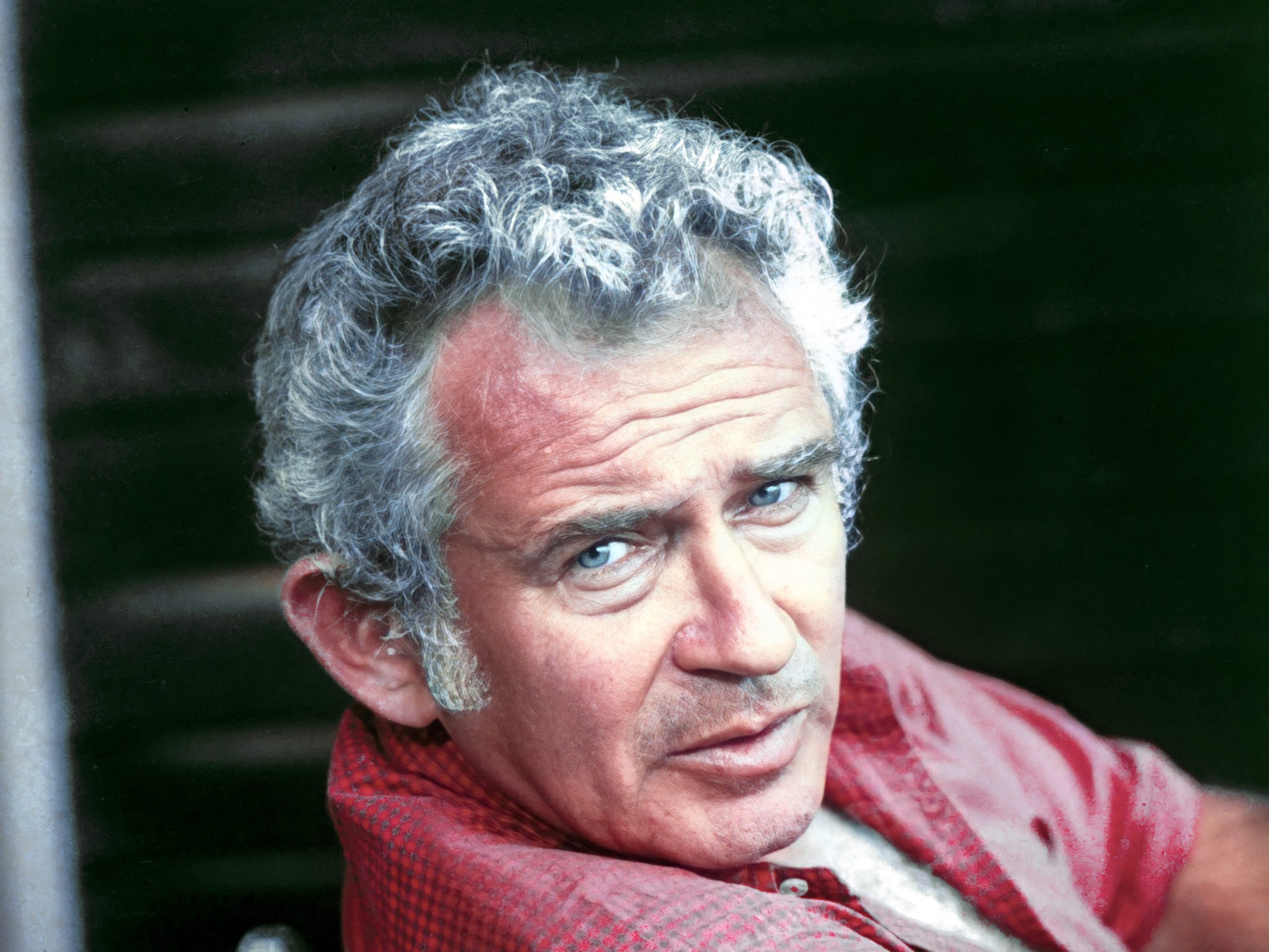
It sounds like it was a mixed bag for you to be so successful with your first novel. The pressure with the second one was so great, and also you made a wonderful analogy about becoming like a lion that can’t just observe without being noticed.
Norman Mailer: Like most other young novelists, I was essentially shy and not purposive, and not forward leaning, so to speak. I was like a bird up on a branch observing activity. I was a wonderful observer in those days, compared to now. What happens is, once you become successful suddenly, you grow from a bird to a lion in a very short period of time, but you don’t feel like a lion. So it’s pretty awful in a certain sense to be a lion who is not feeling like a lion. In other words, you’re having an identity crisis. And, as I’ve said in my book, The Spooky Art, it took me something like 20 years to realize that if I had become a literary lion, that was now part of my true personality. I was not a fraud. Willy nilly, whether I wanted it or not, I had become a literary lion. I had learned to live like one, and I had made all the mistakes of a literary lion, and I could begin to feel like a professional. But, it took 20 years perhaps to get to that point.
That you didn’t feel like you were wearing a lion suit?
Norman Mailer: Very well put. I felt as if I was wearing a lion suit, but inside it there was still the bird. It took a long time before I began to say, “In the literary sense, I might have the beginnings of a lion’s art.”
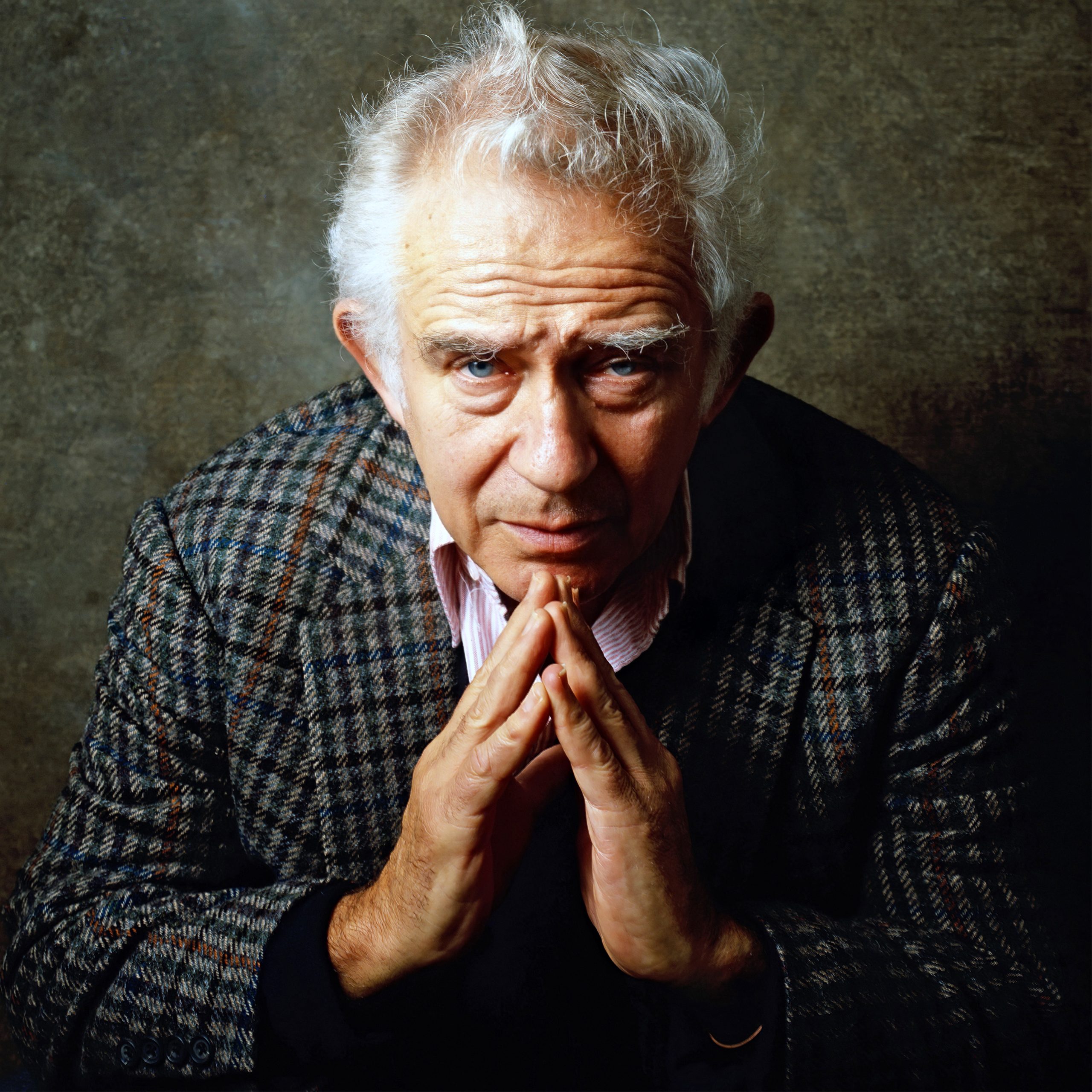
You look back in The Spooky Art to the very harsh reviews of Barbary Shore and The Deer Park, and it sounds like you came away stronger for it, even though it was obviously very painful at the time. You learned that you could get up off the floor.
Norman Mailer: With those bad reviews of my second and third book, I learned the way a young professional fighter would learn that they can take a beating. They can take a bad beating, and they’re not ready to quit the ring, and that does give you a fine strength. It also takes something off you forever. I mean, to write a book, a good novel that you care about, and you put a lot into for a couple of years, and then get very bad reviews, takes something out of you forever. If nothing else, it takes away from you a certain large love of humanity that you might have had. Your love of humanity is somewhat smaller. That is part of — every professional in every trade or discipline goes through that. As professionals, they harden up. It’s why they’re professionals and not amateurs. Amateurs are still full of love. That’s the meaning of the word. A professional is someone who measures the cost of every achievement and decides whether that achievement is worth the effort — and sometimes the killing effort — that will go into it. And so for that reason, if you’re going to keep at one trade all your life, as I have, you truly do well to become a professional, because it enables you to take the bumps.
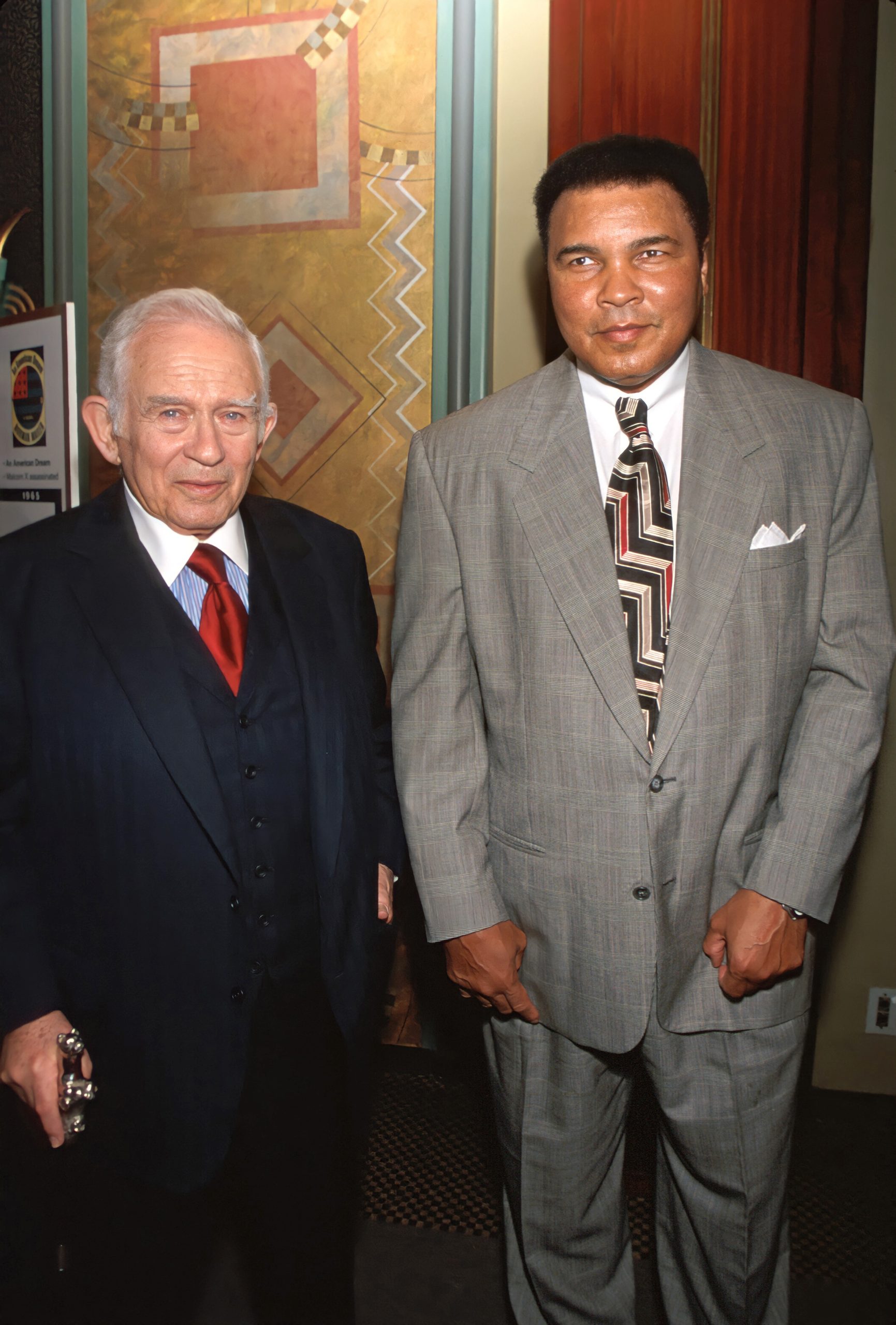
You have often used the boxing metaphor. You did some boxing yourself, and…
Norman Mailer: Never made a cent at it.
It’s impressive that you got into the ring at all. At one point you compared the boxer thinking about being in the ring with his opponent and the terror of contemplating that blank page as a novelist. There’s a similar battle that’s going to ensue.
Norman Mailer: No doubt. I’ve written at times about the spooky element in writing. You go in each morning, and there’s a blank page. Maybe it takes five minutes, maybe it takes an hour. Sooner or later you start writing, and then the words begin to flow. Where does that come from? You can’t pinpoint it. You always wonder, “Will it all stop tomorrow?” In that sense it’s spooky. In other words, you’re relying on a phenomenon that’s not necessarily dependable. That’s a particular kind of fear but there are other fears in writing of an altogether different sort.
Sometimes, when you’re writing a novel, you can feel the fear of future reviews. You can recognize that reviewers are going to hate this, hate this passage. It’s a passage that a writer who is interested only in success for a given book will take out, but nevertheless you like it. You like it because you feel you are saying something there that others are not necessarily saying, and you want it. It seems true to you, and so you decide to keep it, and then you have to take this inner measurement. Just the way certain ambitious young fighters, for example, and their managers will contemplate whether they want to take on another fighter or not — a fighter who may very well be able to defeat them. On the other hand, if they win, it means so much to them. It’s a gamble. And so, in that sense writers very often gamble — very often, every day, every week, every month, every year — with the themes in their book. How much do I dare to say? Because in a certain sense you can say anything you want, but then who is going to publish it, or if it’s published, who is going to read it? Who is going to review it?
So there is this inner measure of, “How much do I dare?” as opposed to the other measure of, “How skillful am I to bring this off? Can I bring it off or not?” In a funny way, once you become a professional, which can take years, the inner life becomes more intense. The professional inner life becomes very intense. The emotional or rhapsodic inner life becomes less than you had as an amateur.
With that distinction — I will go back to it again and again — when I called The Naked and the Dead a book written by an amateur, I wasn’t saying ipso facto it’s no good. There is this certain snobbery that people have, that professionals are always better than amateurs. No, they are only better nine times out of ten. When you get an amateur who is better than the professionals, that amateur is usually incredible.
What do you mean by that?
Norman Mailer: I’ll make a very large remark. In a certain sense a lot of people couldn’t bear Muhammad Ali in those early years, because they felt he was sort of an amateur. In other words, everything he was doing was out of character with what was expected of professionals. As it turned out over the years, he was the greatest professional of them all. But the point I do want to emphasize over and over is I didn’t sneer at amateurs. I should have written a little essay after I said The Naked and the Dead was a book written by an amateur. I should have exactly gotten into what I’m talking about now, which is there’s a difference between being an amateur and a professional, and you have to respect that difference.

